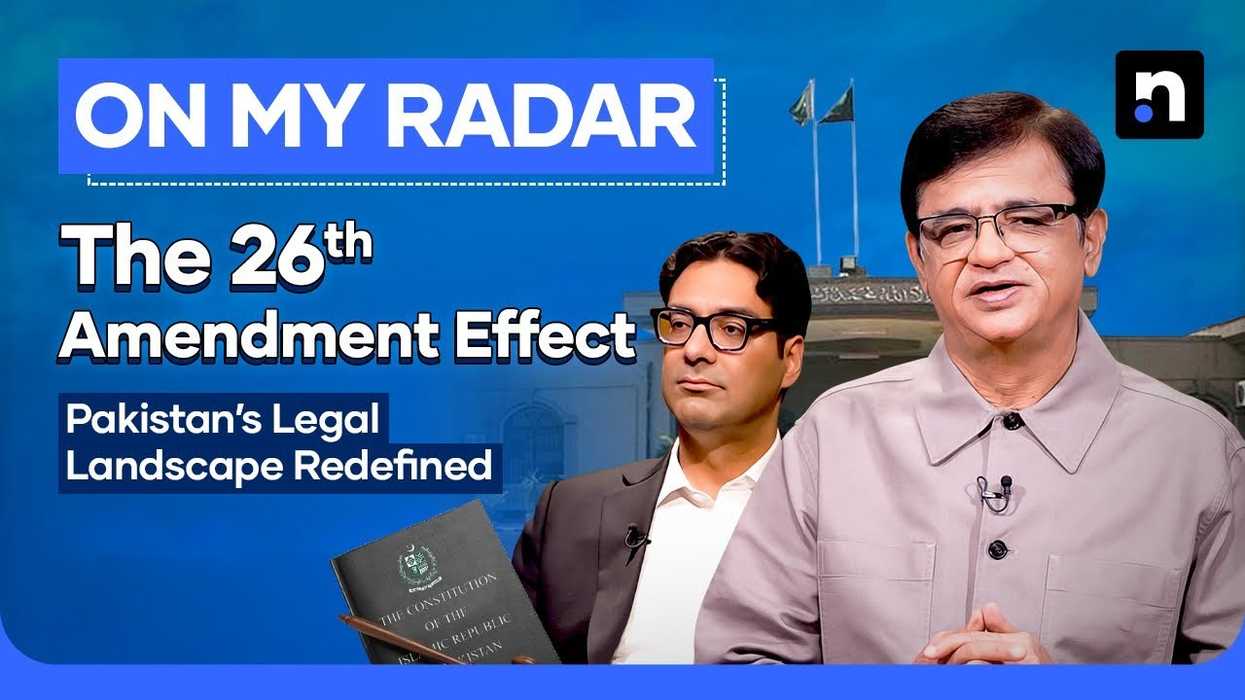Pakistan’s judiciary faces unprecedented divide after 26th Constitutional Amendment
Kamran Khan highlights the power struggle within Pakistan's judiciary following the amendment
News Desk
The News Desk provides timely and factual coverage of national and international events, with an emphasis on accuracy and clarity.
Pakistan’s judiciary has been thrust into turmoil following the passage of the 26th Constitutional Amendment, which has fundamentally altered the country’s judicial power structure.
The amendment has effectively divided the Supreme Court into two entities: the traditional apex court and a newly empowered constitutional bench, creating friction among the nation’s top judges.
While Chief Justice of Pakistan Yahya Afridi technically heads the judiciary, the real authority appears to lie with Justice Aminuddin Khan, who leads the bench. Notably, Justices Mansoor Ali Shah and Muneeb Akhtar, senior to Justice Aminuddin in the judicial hierarchy, have seemingly been sidelined in the wake of the amendment.
The changes have given the ruling coalition, led by the Pakistan Muslim League-Nawaz (PML-N) and Pakistan Peoples Party (PPP), greater influence over judicial proceedings. This shift has sparked concerns about the independence of the judiciary, as the process of forming benches and assigning cases has become increasingly politicized.
A recent legal battle over a customs appeal highlights the growing tensions. The case was initially assigned to a three-member bench headed by Justice Mansoor Ali Shah. However, before the next hearing, the Supreme Court’s Practice and Procedure Act Committee—chaired by Chief Justice Afridi—intervened, removing the case from Justice Shah’s bench and assigning it to the constitutional bench led by Justice Aminuddin.
In response, Justice Shah issued a contempt notice against the additional registrar of the Supreme Court. The move prompted an official statement from the court, announcing the registrar’s dismissal, effectively shutting down the challenge to the shifting judicial powers.
Justices Shah, Ayesha Malik, and Aqeel Abbasi have since written to Chief Justice Afridi and Justice Aminuddin, questioning the abrupt transfer of cases and the authority under which such decisions are being made. Justice Shah has also raised the matter of judicial bench formation with the chief justice, further escalating the crisis.
High court appointments fuel controversy
The turmoil is not limited to the Supreme Court. Pakistan’s high courts are also experiencing unrest, particularly regarding judicial appointments and transfers. Recently, President Asif Zardari approved the transfer of three judges—Justice Sarfraz Dogar from the Lahore High Court, Justice Khadim Hussain Soomro from the Sindh High Court, and Justice Muhammad Asif from the Balochistan High Court—to the Islamabad High Court (IHC). The move comes amid speculation over IHC Chief Justice Aamer Farooq’s possible elevation to the Supreme Court.
The timing of these appointments has drawn scrutiny, especially as they occurred just a day after five IHC judges penned a letter opposing the transfer of judges from other courts. The Islamabad Bar Council, the Islamabad High Court Bar Association, and the District Bar Association have collectively rejected the appointments, announcing protests against what they see as executive interference in judicial matters.
A judiciary reshaped by politics
The 26th Constitutional Amendment, passed in the final days of former Chief Justice Qazi Faez Isa’s tenure, has dramatically restructured judicial oversight.
A newly formed 13-member Judicial Commission now holds the power to appoint the Supreme Court’s chief justice from among the three senior-most judges, rather than following the traditional seniority principle.
This commission includes government officials such as the law minister, the attorney general, and three members of parliament, raising concerns about political influence in judicial appointments.
Adding to the controversy, the amendment strips the Supreme Court’s chief justice of suo motu powers, granting exclusive jurisdiction over constitutional matters to the constitutional bench. Critics argue this effectively weakens the judiciary’s independence and curtails its ability to check executive power.
Judicial divisions deepen amid legal uncertainty
Legal experts warn that the ongoing disputes within the judiciary could undermine public confidence in the legal system. Several petitions have already been filed challenging the 26th Constitutional Amendment, with senior judges urging Chief Justice Afridi to convene a full court hearing on the matter. However, these requests have yet to be entertained.
Meanwhile, the Judicial Commission is set to appoint eight new Supreme Court judges on February 10, a move that could further cement the amendment’s impact.
Observers fear this could silence remaining dissenting voices within the judiciary and solidify the government’s grip over the courts.








Comments
See what people are discussing